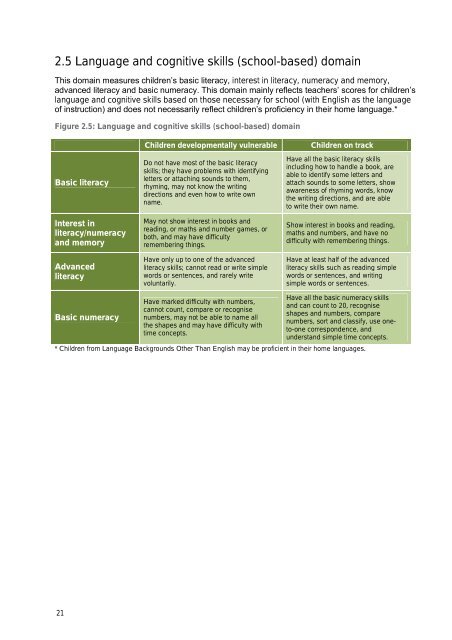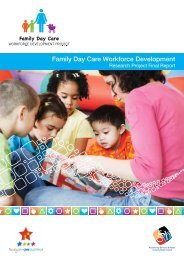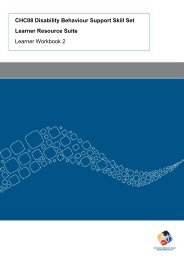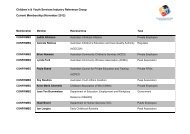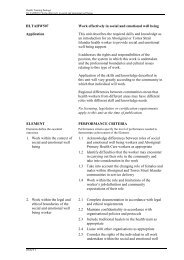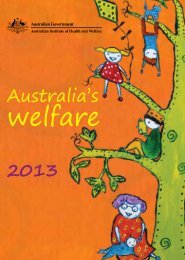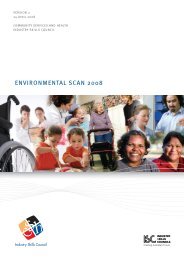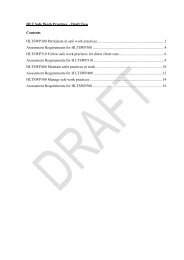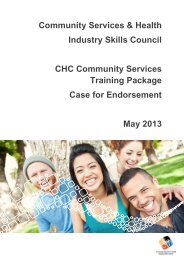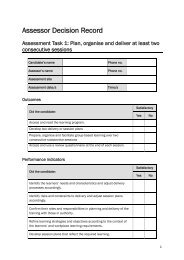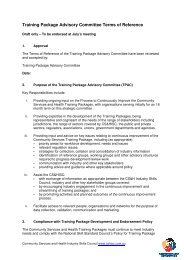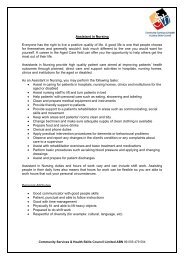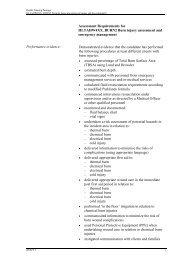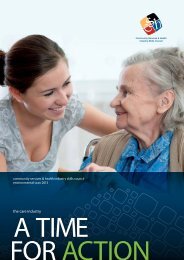A Snapshot of Early Childhood Development in Australia 2012
A Snapshot of Early Childhood Development in Australia 2012
A Snapshot of Early Childhood Development in Australia 2012
You also want an ePaper? Increase the reach of your titles
YUMPU automatically turns print PDFs into web optimized ePapers that Google loves.
2.5 Language and cognitive skills (school-based) doma<strong>in</strong>This doma<strong>in</strong> measures childrens basic literacy, <strong>in</strong>terest <strong>in</strong> literacy, numeracy and memory,advanced literacy and basic numeracy. This doma<strong>in</strong> ma<strong>in</strong>ly reflects teachers scores for childrenslanguage and cognitive skills based on those necessary for school (with English as the language<strong>of</strong> <strong>in</strong>struction) and does not necessarily reflect childrens pr<strong>of</strong>iciency <strong>in</strong> their home language.*Figure 2.5: Language and cognitive skills (school-based) doma<strong>in</strong>Basic literacyInterest <strong>in</strong>literacy/numeracyand memoryAdvancedliteracyChildren developmentally vulnerableDo not have most <strong>of</strong> the basic literacyskills; they have problems with identify<strong>in</strong>gletters or attach<strong>in</strong>g sounds to them,rhym<strong>in</strong>g, may not know the writ<strong>in</strong>gdirections and even how to write ownname.May not show <strong>in</strong>terest <strong>in</strong> books andread<strong>in</strong>g, or maths and number games, orboth, and may have difficultyremember<strong>in</strong>g th<strong>in</strong>gs.Have only up to one <strong>of</strong> the advancedliteracy skills; cannot read or write simplewords or sentences, and rarely writevoluntarily.Children on trackHave all the basic literacy skills<strong>in</strong>clud<strong>in</strong>g how to handle a book, areable to identify some letters andattach sounds to some letters, showawareness <strong>of</strong> rhym<strong>in</strong>g words, knowthe writ<strong>in</strong>g directions, and are ableto write their own name.Show <strong>in</strong>terest <strong>in</strong> books and read<strong>in</strong>g,maths and numbers, and have nodifficulty with remember<strong>in</strong>g th<strong>in</strong>gs.Have at least half <strong>of</strong> the advancedliteracy skills such as read<strong>in</strong>g simplewords or sentences, and writ<strong>in</strong>gsimple words or sentences.Basic numeracyHave marked difficulty with numbers,cannot count, compare or recognisenumbers, may not be able to name allthe shapes and may have difficulty withtime concepts.Have all the basic numeracy skillsand can count to 20, recogniseshapes and numbers, comparenumbers, sort and classify, use oneto-onecorrespondence, andunderstand simple time concepts.* Children from Language Backgrounds Other Than English may be pr<strong>of</strong>icient <strong>in</strong> their home languages.21


